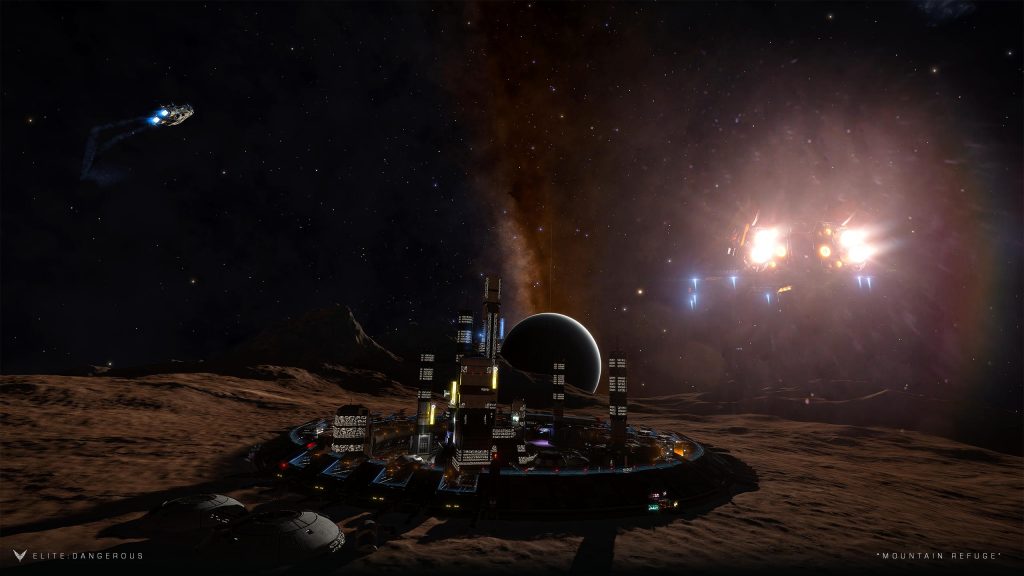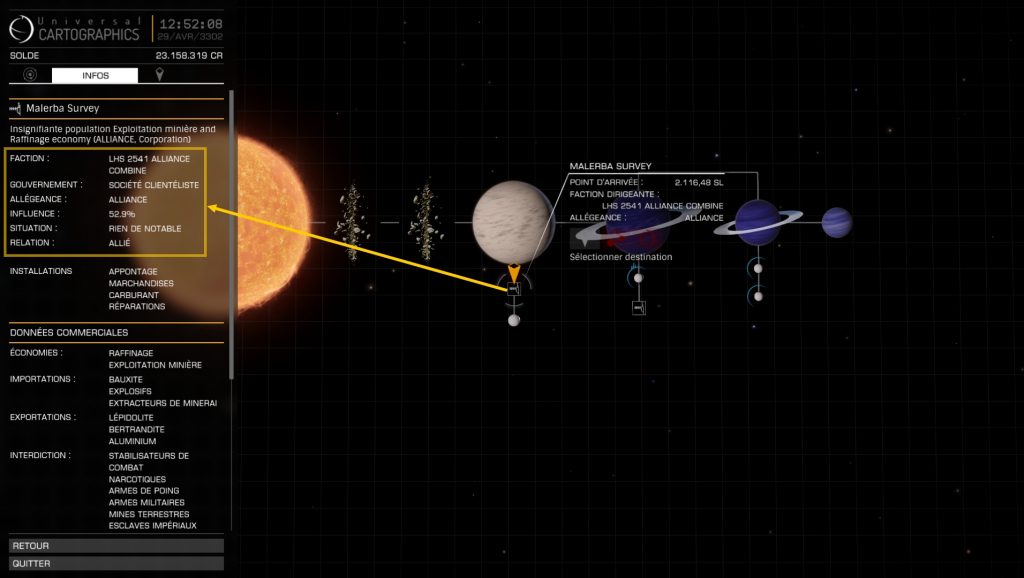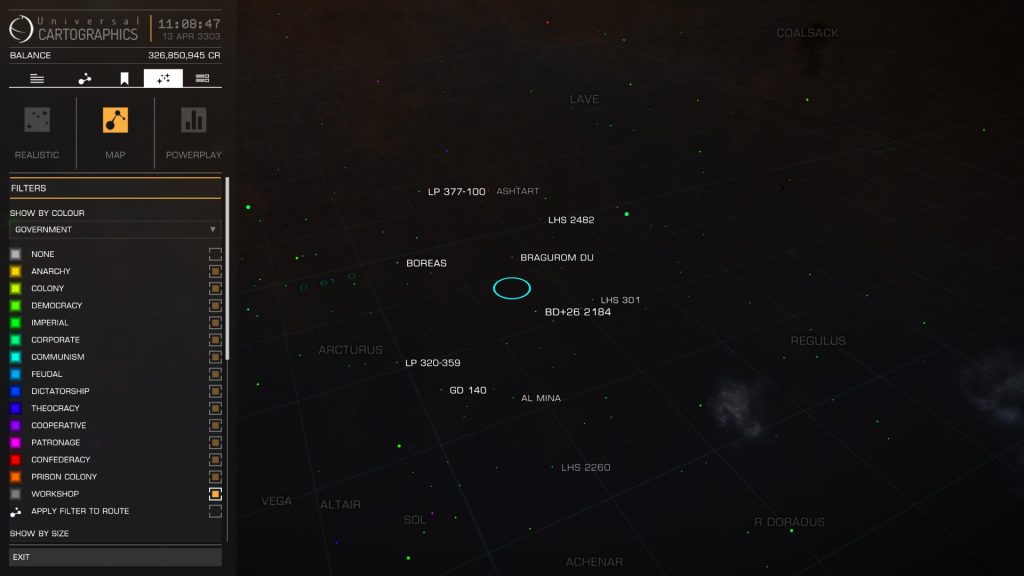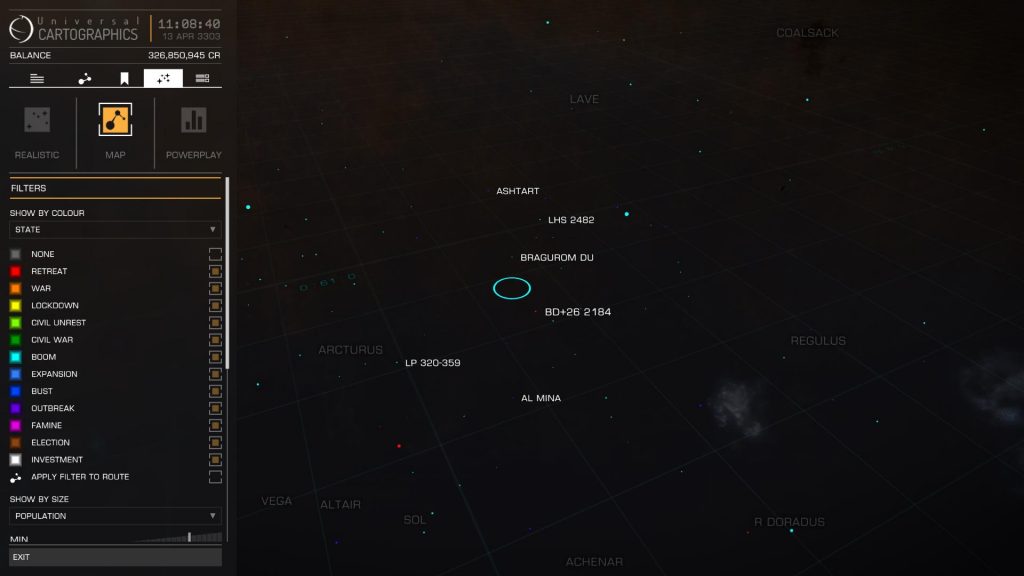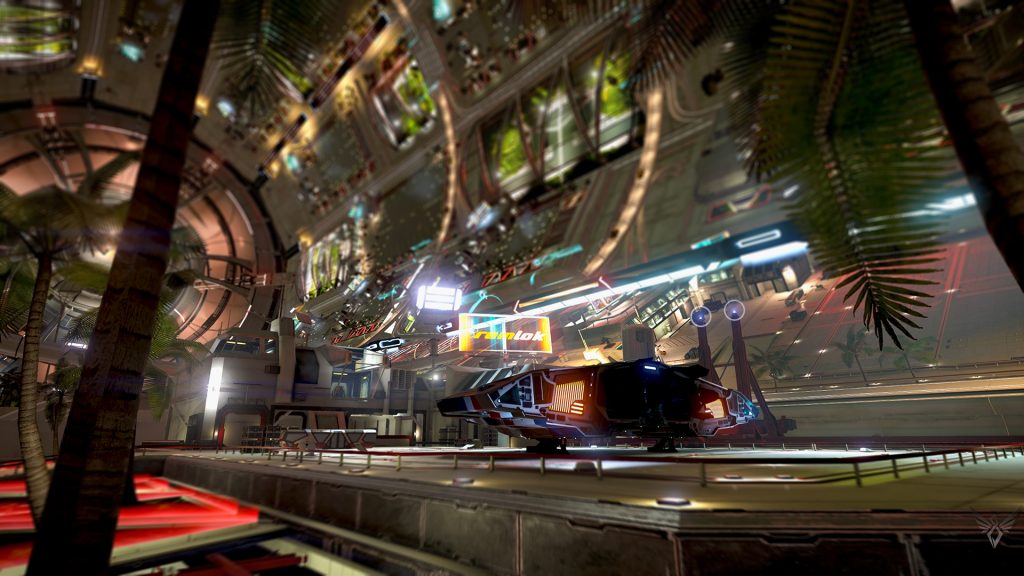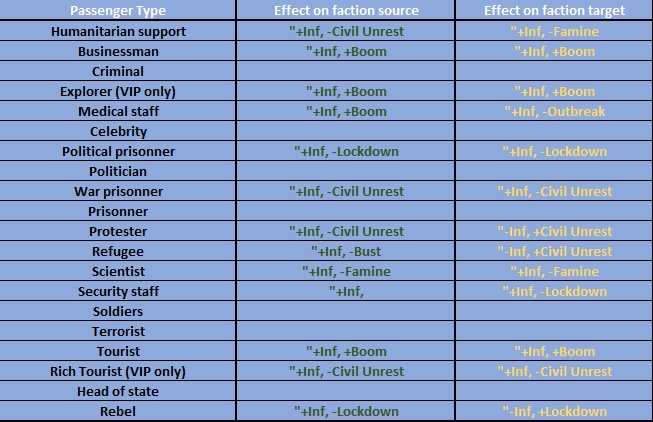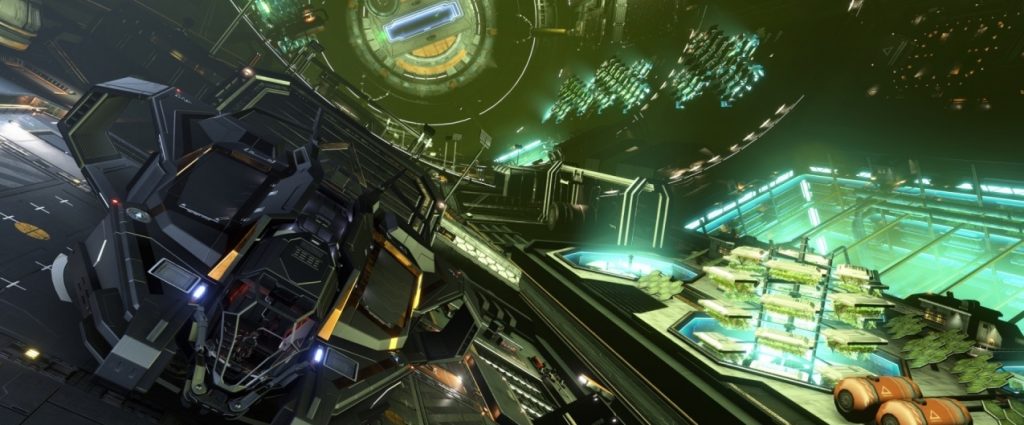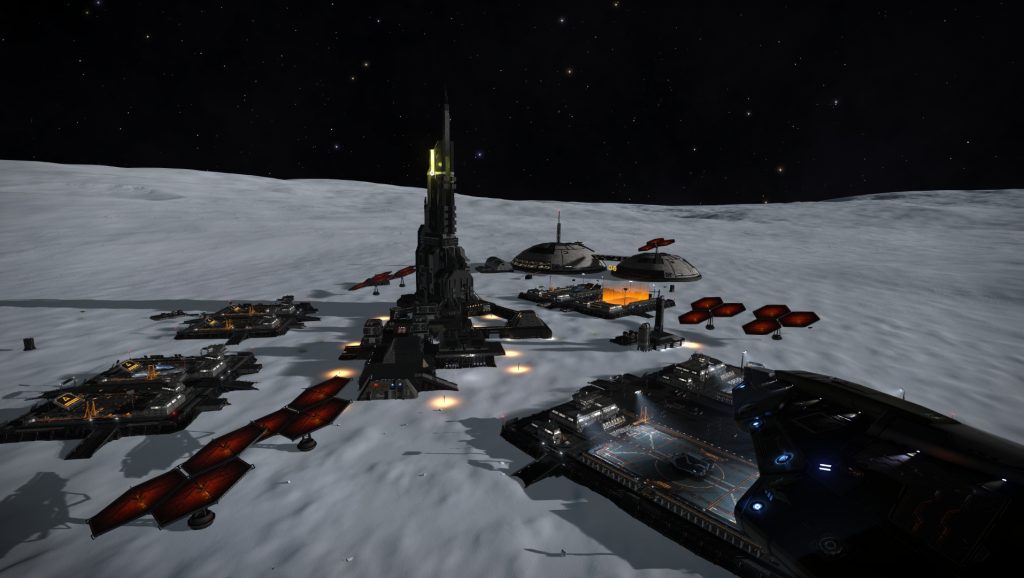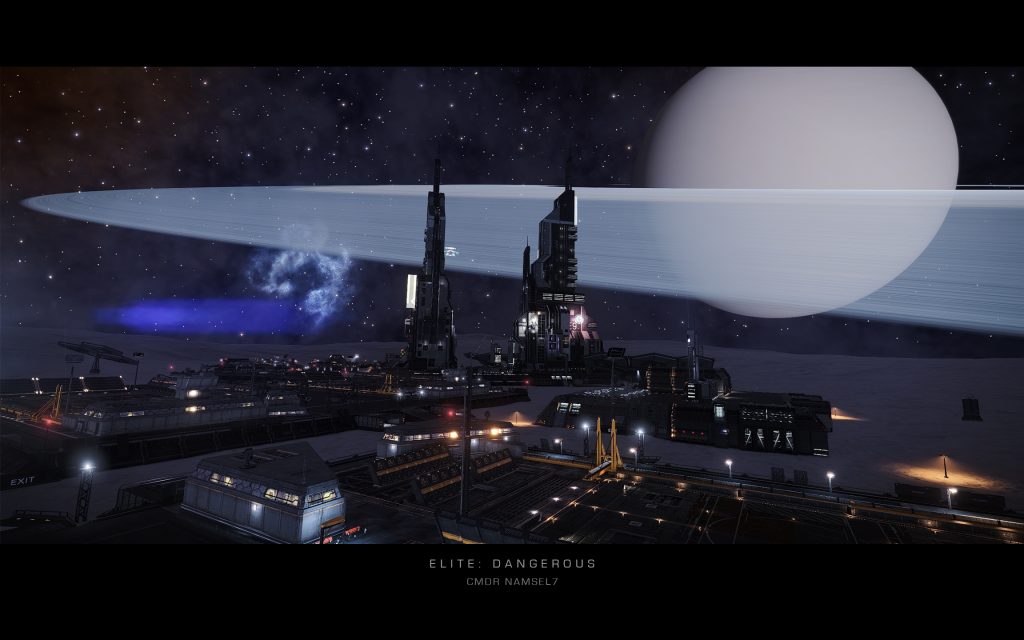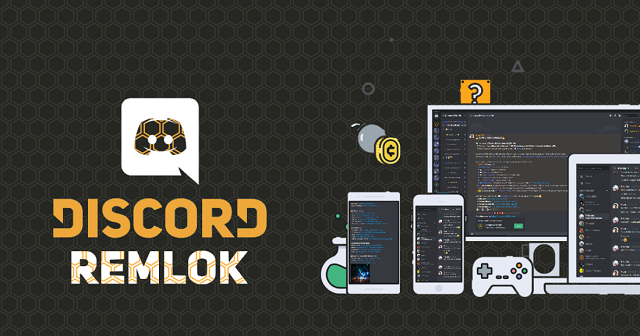This post is also available in: Français (French)
Updated on the 24/02/2020
Localized by Larmakosa
The Background Simulation, or BGS, is a very fragile and hard to master feature with many mechanics.
This guide will help you assimilate the game information in order to better understand the why and wherefores of missions, how it fosters influences, systems states, minor factions.
Everything is tied together, Marty!
All right, still with me? Administrators, let’s go!
Have a look at our Powerplay Guide.
Introduction
The BGS, which stands for “Background Simulation“, relies on many factors using all the same simulation, whether you’re on PC or Consoles.
We’re all in the same galactic simulation.
Maybe you’re unaware of it, but your daily actions affect this simulation: your combat bonds, trading, the planetary port you’ve just attacked or the ship you’ve just destroyed have more or less pulled some strings that slightly change the balance of powers, and make the galaxy alive.
The legend has it that even the colour of your socks might influence the galaxy!… Ok, no, maybe not.
This system relies on the following functionalities:
- Influences
- States
- Missions and actions
- The colour of your socks (Enough with that joke already!!)
These functionalities make the human civilization go round and change little by little the face of our universe.
We will therefore go over each of these points, and dive further into the details as we go.
Influences and governments
Influences indicate the representation of a minor faction in a system. They decrease and increase according the players actions in a given system.
There are three ways to increase the influences of minor factions, and the precise percentages are available in the system map, details tab.
You will also find information about their types of government.
All the factions percentages once added equals 100% ; the higher the percentage of a faction, the more powerful it is, and the more likely it will control the system.
If a faction loses influence, the others will gain that lost influence.
For them to change, it’s very simple; actions have to be made in the system:
- Fight and gain bounties/bonds;
- Trade with spaceports;
- Sell exporation data;
- Do missions;
- Destroy civil or police ships…
Systems will change power allegiances, economies and securities because of/thanks to the players actions (and in a lesser way, the NPCs’).
Note that the higher a system population is, the more difficult and the slower it is to change its influences.
A population of approx. 20,000 inhabitants is easy to shift, administrating 1,000,000 inhabitants is a completely different story.
There are 12 types governments which I will list from more common to less common.
Each brings their own gameplay style:
- Corporation – Companies aiming profits, they usually have a very high security and low population. Tobacco is illegal.
- Democracy – Citizens are often happy thanks to their liberties and good security. No war, but elections.
- Dictatorship – Ships can be destroyed with the police actively looking for you. Although security is pretty high, smugglers can often be found bending the system strict rules. Weapons and drugs are legal.
- Cooperative – A group of low population working together to a common goal. Security is weak and pirates are numerous.
- Communist – The population shares all its means of production and exchange. They distribute wealth to each according to his/her need and everyone is the equal of the other (in theory). The sales of personal weapons and battle weapons is common.
- Confederacy – A union of governments helping each other for a mutual benefit. States can change quickly.
- Feudal – Often a multitude of groups fighting for more power. They look like anarchy but have bounties on outlaws. Security is nonetheless low.
- Anarchy – If someone wants to kill you, he will try to. End of story. No laws, no master.
- Patronage – The people puts its government above everything else and will help it prosper as much as possible.
- Imperial – Never seen in game
- Theocracy – A low security group , often protected by a superpower. They believe in a higher purpose.
- Prison Colony – High security
- Colony – Land base newly acquired. I feel like the state changes a bit later once an economy is decided.
Missions and actions
As explained earlier, players missions and actions in systems will shift the balance of influences. Here’s how I define those terms:
- Mission: doing missions for a faction via the Stations’ Missions Board.
- Action: trading, bounty hunting, smuggling, exploring… In short, everything else.
There are many different categories of missions in Elite: Dangerous.
With this influence, you can manipulate the background simulation of the game for your systme and those surrounding it.
Doing missions is the main gameplay of the BGS, this is how you may be able to get your own station.
Here are their details:
| Mission Type | Faction source | Faction target |
|---|---|---|
| Cargo Cargo food Cargo medicines Cargo weapons Cargo biowaste and drugs | Boom ↑ Famine ↓ Outbreak ↓ Lockdown ↓ Outbreak ↓ Civil Liberty ↑ | Boom ↑ Famine ↓ Outbreak ↓ Civil Unrest ↓ Outbreak ↑ |
| Smuggling Smuggling weapons | Bust ↓ Lockdown ↓ | Bust ↑ Lockdown ↑ |
| Massacre/Assassinations Massacre surface Fortresses Bounty Hunting | Lockdown ↓ Lockdown ↓ Lockdown ↓ Civil Unrest ↓ | Lockdown ↑ Famine ↓ Famine ↓ / Civil Unrest ↑ Lockdown ↑ |
| Donation credits/Data Donation food Donation medicines Donation weapons | Boom ↑ Famine ↓ Outbreak ↓ Civil Unrest ↓ | |
| Mining | Boom ↑ | |
| Tourism | Depending on Passengers (Doctor = Outbreak ↓ or Scientists = Famine ↓) |
The different changes of states by Passengers:
And finally, there are the players actions:
- Missions – As detailed below
- Bounty Hunting – Selling your bounties to a faction owned station raises this faction influence ↑ and the system security level, which will make police force appears more often and wanted ship less often. Civil Unrest ↓ / Lockdown ↓
- Trading – Selling your commodities to a faction owned station raises this faction influence ↑ . Commodity trading, famine ↓ / Medecine trading, outbreak ↓, …
- Smuggling – Selling your illegal commodities to a faction owned station’s black market lowers this faction influence ↓. Bust ↓
- Exploration – Selling your exploration data to a faction owned station raises this faction’s influence ↑ . Boom ↑
- Security force murders – Destroying system authority vessels lowers the influence of the faction controling the system and its security level. Lockdown ↑
- Civilian murders – Destroying civilian ships of the faction controlling the system lowers its influence and its security level. Civil Unrest ↑
States
Human civilized space is a bubble of roughly 20.000 systems. Each of these systems shelters multiple minor factions. These minor factions have an influence on their systems. Depending on these influences variations, different states can appear, adding different bonuses or means to the systems.
► One state per faction per system
They are split in several categories:
- Economic state – reflect a system’s wealth.
- Security state – reflects a system’s security.
- Conflict – based on the systems’ influences, it represents the assets of each factions.
- Happiness – based on your factions states in your systems. Despondent, Unhappy, Discontented, Happy, Elated.
- Other – Some other states like the Thargoids Incursions, Expansions or the Outbreaks
The currently known states are the following:
- Lockdown – When a faction is under Lockdown, the security level of the system it controls raises temporarily and the system wealth lowers temporarily. Bounty hunting may shorten the Lockdown period.
- Boom – It’s usually the result of trading benefits and concluded commercial contracts. When a faction is going to the Boom state, the system’s wealth it controls temporarily increases and the missions impacts are doubled.
- Bust – When a faction is experiencing a bust, the wealth of the system is temporarily decreased and its influence is lowered temporarily. Commercial actions like Trading can’t help as long as bust is active.
- Civil War – Civil War happens when factions are competing for the control of stations. When a faction is involved in a civil war, its economical, security and happiness levels are reduced temporarily.
- Civil Unrest – Civil unrest happens because of an illegal activity. When a faction is hit by Civil unrest, the happiness and wealth levels in its system temporarily decrease.
- Famine – When a faction suffers from Famine, happiness level in its system decrease temporarily. Combat activities have no effect on influence when Famine is active. Trading food commodities can contribute to end famine.
- Outbreak – When a faction is struck with an outbreak, the happiness level in its system is lowered temporarily. Combat activity has no effect on the influence as long as an outbreak is ongoing. Medicine commodities trading mission can contribute in ending the outbreak.
- Election – Elections happen when two factions with the same political structure solve an influence and ownership conflict within a system ; like two democracies.
- War – Wars happen when a faction invade a system controlled by another faction. As long as the conflict lasts, happiness, wealth and security levels are decreased. Fighting activities related to the two factions will determine the outcome of the conflict. If none of the two factions can dominate the other, the war ends on a ceasefire.
- Blight – A disease ravages crops, haul Agronomic Treatments to the station to counter this.
- Pirate Attack – Provocked by Smuggling and Trading. Counter this by Trading weapons and running Bounty Hunting.
- Expansion – Expansions happen when a faction has successfully maintained a certain level of influence (75%) over a happy population for a set duration of time. Expansion is costly. So, when a faction is expanding, wealth and development levels of the system it comes from are temporarily decreased. If you’re aiming at an expansion in a system you’re not in control of, a conflict with the controlling faction will start at 60%.
- Retreat – A faction is considered in retreat if its influence withing a system falls below a certain level (2.5%). If the faction influence remains weak for 5 days total, it must completely leave the system. On the contrary, if that faction can increase its influence level, it can stay in the system.
- Civil Liberty – The faction knows a time of stability within its system, generating a general happiness in the local population. Bounty hunting can contribute to maintain a time of civil liberty.
- Investment – The faction knows a prosperous economic time within its system, generating a general happiness in the local population. Trading can help sustaining a time of investment.
- Incursion – Thargoids are attacking the system, players will have to counter the threat by helping with special missions and destroying Thargoids fleets in USS and AX combat zones. If the fighters can’t hold the waves of Thargoids, the system will fall into Infestation.
- Factions having trouble with water supplies can now sometimes suffer a Drought, causing an economic cost as they have to import significant amounts of water. This can be countered by selling water and other emergency supplies.
- Infrastructure Failure disrupts a faction’s operations and reduces both security and economic standards. The increased demands on infrastructure elsewhere in the star system may lead to similar failures for other factions. Food and machinery deliveries can speed up repairs.
- Terrorism. Terrorists can target prosperous factions, causing a significant security and influence cost. This can be countered by legally selling weapons to the authorities and assisting with bounty hunting efforts, or by the faction entering a Lockdown.
- Natural Disasters have a significant economic and security cost for a faction. A natural disaster puts extra strain on the star system’s infrastructure, increasing the chance of Drought or Infrastructure Failure for other factions in that system.
- Public Holidays increase a faction’s influence and standard of living for their duration, however that comes at small economic and security cost.
Economy and Security
- For Economic and Security states:
- Security States – represented by a cursor on a bar, it changes states when it moves to the left or to the right.
- Economic States – represented by a cursor on a bar, it changes states when it moves to the left or to the right.
- You will find this information in the system (right) panel, and also in the Allegiance page in the Squadron that we’ll talk about next week.
- Every action of commanders in game, missions, scenarios, … influence Economic and Security States.
- Each subdivision of the bar represents different states and when the cursor move over a zone, the faction will switch to that state.
- At the center, it’s “None” or “No current state”
- When the economic state cursor has moved to the right, the faction can enter a Boom and then an investment state. The other end of the bar is for Bust and Famine.
- Security bar has the Lockdown and Civil Unrest and a new state called Civil Liberty. Civil Liberty represents a time of freedom and security of the faction population.
These states have a delay before they’re triggered, a minimum and maximum duration and a refresh indicating that this state can not be reproduced before X days.
| State | Preparation | Minimum Days | Maximum Days | Cooldown |
|---|---|---|---|---|
| Expansion | 4 | 3 | 7 | 2 |
| Investment | 0 | 5 | 5 | 1 |
| War | 1 | 4 | 7 | 1 |
| Civil War | 1 | 4 | 7 | 1 |
| Boom | 1 | 3 | 28 | 3 |
| Bust | 2 | 3 | 28 | 3 |
| Election | 1 | 4 | 7 | 1 |
| Civil Unrest | 1 | 3 | 7 | 3 |
| Famine | 2 | 3 | 28 | 7 |
| Outbreak | 1 | 3 | 28 | 6-8 |
| Lockdown | 1 | 3 | 14 | 1 |
| Retreat | 1 | 5 | 5 | 1 |
Finally, they have priorities. This means if two states are triggered at the same time, they will prioritize themselves in the following order:
- Conflicts – War, Civil War, Election // Freezes influence of the involved factions, rounds have to be won over 7 days.
- Expansions – Expansion, Investment, Retreat // Based on Satisfaction of factions and their influence.
- Other – Boom, Bust, Famine, Outbreak, Lockdown, Civil Unrest
Managing your minor faction
Administering your faction in game is a time-consuming activity. It’s even worse if you have to look around for information about the mechanics. Remlok Industries offers you some tips in order best manage your minor faction!
▲ 1. Settle in the good system
Keep in mind that the more citizen a system holds, the more difficult it will be to change influences. Systems with 100,000 citizens are easily shifted by one very active pilot, let’s say up to 1,000,000 citizens; beyond, a group of 3/5 active players will be necessary and probably a dozen for 1,000,000,000 inhabitants over several days to make things move. Don’t forget you are not the only pilot to support a minor faction and it’s as easy to raise a faction than it is to lower it.
For example, the Leesti system sees players activity explode every day! Find a rather quiet system to start your activity as an administrator. You can see the number of pilots (players) having set foot in that system in the information located at the bottom center of the station interface panel. If you are motivated, explore systems and take note of the number of pilots that went through them, of the stations, of their government, economics and population in order to choose then the best system in which to thrive!
▲ 2. Observe your system and work on it
Once settled in a system, take note on a regular basis of the influence level of your minor faction. This way, you’ll be able to watch the evolution and the impact of your efforts, which is very motivating ! The best is to use an Excel sheet. You can even do graphs ! ?
Perform mission and activities for your faction in order to support it and increase its influence. Come back the next and assess the impact by writing down your activities. Don’t forget to check on your system State also, as well as the surface colonies.
If you work in group or non solo, you can manage way more populated system, bigger and even several systems! Different corporations of players are specializing in the BGS manipulation, like our faction Remlok Industries or Alliance of Statistics, Alliance Elite Diplomatic Corps, and others.
Influence and States of systems only change once per day, and even if there’s no precise time, it’s usually around 1:30pm CET.
▲ 3. Conflicts
You have chosen a faction or you have got your own ? It’s not time to gain outposts, stations, planetary bases and other spaceports! For that, you will need to enter a conflict with other minor factions in order to capture their spaceports.
The goal is to balance influences between your faction and the faction you wish to get into a conflict with, so that they’re at the same level . If the rival faction’s influence is a bit low, don’t hesitate to do some missions for it in order to equalize your influences and therefore get into conflict, a state which should put “on hold” and arrive very soon.
Note that this requires an influence at a minimum of approx. 7%.
You will need to win 4 days of conflict to win.
- Once the war and conflict started, you will have to run as much combat missions as possible but more than anything else: To win Conflict Zones and complete their objectives by killing the enemy ships. Once the war is won, the game will separate the two factions with 5% difference influence.
- If it’s a civil war, it is exactly the same process with Conflict Zones to win.
- If it’s an election, you will have to perform as much Elections missions as possible: transport of sensitive data and Politicians Passengers.
Conflicts are done to fight over the control of a station, base or outpost.
▲ 4. Expansions
Now that you control the system thanks to your previous conflicts, you might want to expand to a new system.
In order to expand on another system, you will need to raise your influence up to 75% minimum, in that system where you will expand from.
During the Expansion, you will slowly loose influence on the system where you are expanding from.
It is possible to direct the expansion, it’s not totally random.
The priority of the expansions is based on a cube of 20LY on both sides of the original system, along the axes of the galaxy map. So we end up with 40LY in diameter.
In this cube, the inhabited systems will be chosen from those where the expanding faction is not yet present according to the following priorities:
- Closest system where the faction has never been before, with less than seven other factions present. If none exist, then… ↵
- Closest system from which the faction has already retreated, with less than seven other factions present. If none exists, then… ↵
- Closest system where the faction has never been before, with exactly seven other factions present, including at least one non-native faction. If none exists, then… ↵
- Closest system whose faction has already retreated, with exactly seven other factions present, including at least one non-native faction.
- If no system satisfies these four hypothesis, the expansion will fail for this phase and the next expansion will then consider a cube of 40LY of radius, always aligned with the grid axes (therefore 80LY of diameter).
In cases where the Expansion brings our faction into a 7 faction system, the total of factions will increase (with ours) to a maximum of 8 factions and we will immediately enter in conflict with the non-native faction, closest to our entry %influence.
After the conflict, the losing faction will be removed from the system in order to return to a balance of 7 factions.
Congratulations, you’ve successfully expanded your faction influence to another system! You are now at the bottom of the scale and you will have to work on the BGS to climb it and claim that system as yours. Start conflicts with the other factions for that.
▲ 4. Management
It’s up to you manage the influence in your systems by doing missions, trading without going into a boom, destroy ships from this or that faction or manually start wars to avoid certain annoying states like economic boom which generally increases the influence too much.
It’s more interesting to keep your influence under control, at the top of the ranking but not too high. This will bring you the benefits of being able to react quickly to changes on the system. If you want to conquer the other spaceports of the system, it will be necessary to bring your influence to the same level as the minor factions concerned managing these other airports.
Some BGS tips & tricks:
- Trading: 700Cr / unit is excellent, selling a unit at 2000Cr profit / unit is as effective as selling at 700Cr / unit. For a Type 9, 180/250 units of the same product is the best tonnage possible. Selling three to four different products at the time of sale is much more effective than selling a single product. Double effect during Booms. Fix from February 2020, no need to sell your cargo 1u by 1u anymore as it is now counting the cargo’s value.
- Negative Trading: Smuggling, selling on the black market if available and trading at a loss (negative profit) on the station of a faction decreases the influence of this faction.
- Assassination: Look for an installation own by a faction, a ship of this faction will almost always appear with each logout/login. No powerful ATR to counter us for a quick and easy effect.
- Retreat: 1 + 6 days, must be under 2.5% on the 6th tick. The best tip is to miss VIP passenger transport missions by damaging your ship the last days of the state. You can also gather missions (20max) with a 24h timer and let it fail automatically once that timer is over, on the last tick. Then accept that you failed the mission to decrease INF. You can’t retreat a faction native from a system.
- Bounty Hunting: It’s more interesting to make 200k bounty by 200k bounty rather than 2M in one go by a factor of 10 point of BGS values. At Remlok Industries we try to sell the bounties once we reach 700k max whenever possible in operation. Fix from February 2020, no need to sell your bounties by packs anymore as it is now counting the total value.
- Missions: Prefer missions with ++++ and +++++ INF as they move more Influence.
- Expansion: Since the Update Chapter 4: 5d Pending + 3d to 7d Active. Missions help to shorten Active Time
Feel free to share this article with your friends!

